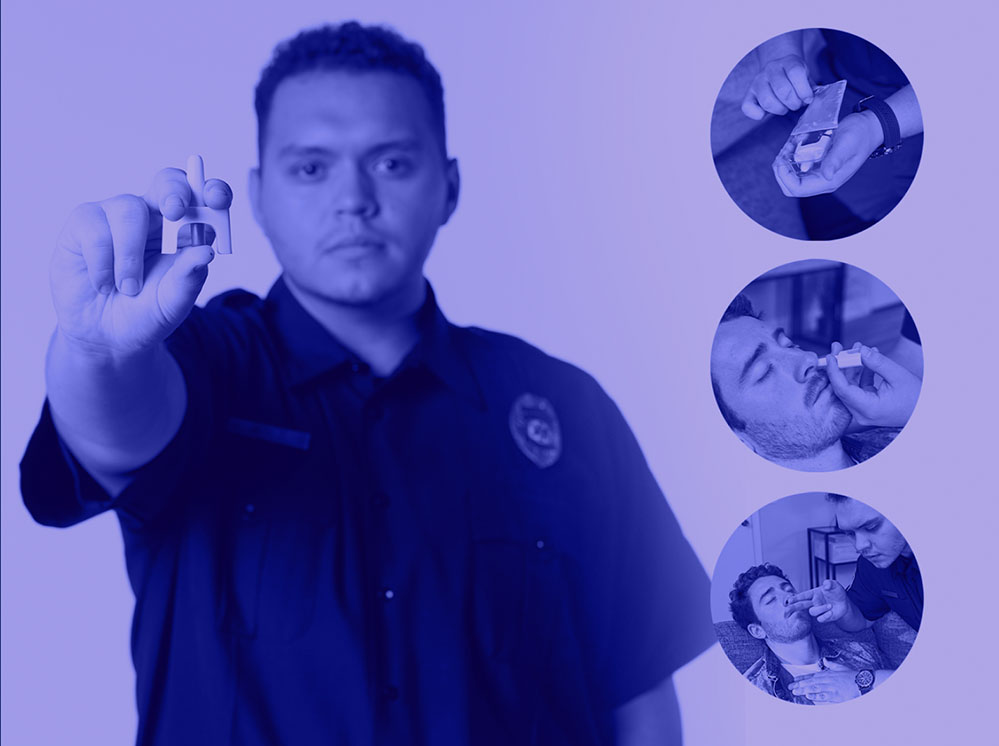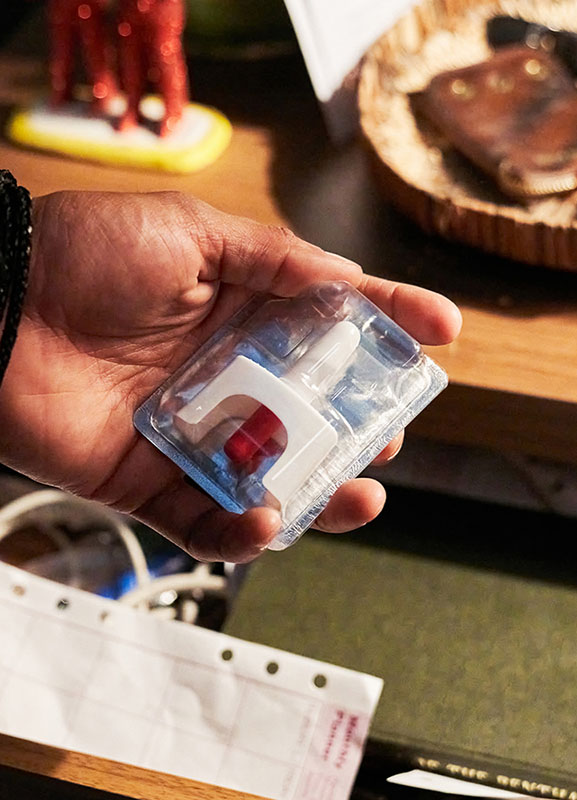Carry naloxone.Accidental overdoses
happen every day.
Naloxone reverses opioid overdose and saves lives. Make sure you know where to get it, how to use it, and what to do next.
Naloxone gives you a chance to save a friend, family member, or complete stranger
Where to Get Naloxone
This map is for informational purposes only and is not intended to guarantee naloxone availability. Some pharmacies may not have naloxone in stock, so it is important to call first.
Know How to Use Naloxone
Remember these three steps so you know how to quickly respond to an overdose.
Step 1: Peel
Step 2: Place
Step 3: Press
Repeat as needed
Multiple doses won't hurt someone, but they could help.
HOW TO USE NALOXONE
In case of overdose,
use naloxone and call 911
Naloxone is safe to use on people of all ages, including infants and elders. People who are physically dependent on opioids can have withdrawal symptoms after naloxone has been administered. These withdrawal symptoms can be uncomfortable, but withdrawal from opioids is rarely fatal.
The risk of death due to opioid overdose is very high, so it is important to administer naloxone to anyone you suspect might be overdosing. After receiving naloxone, the person whose overdose was reversed might become irritable and experience nausea, sweating, vomiting, tremors, anxiety and irritability. The two key steps in responding to overdose are administering naloxone and calling 911 so that anyone who overdosed receives medical attention.
Articles
Sources
- California Department of Public Health. (n.d.). Fentanyl testing to prevent overdose: Information for people who use drugs and healthcare providers.
- Centers for Disease Control and Prevention. (2021). Preventing opioid overdose.
- National Institute on Drug Abuse. (2022). Naloxone DrugFacts.
- Centers for Disease Control and Prevention. (n.d.). Naloxone: Family and caregivers, what you need to know about naloxone.
- County of Los Angeles Public Health. (n.d.). Los Angeles County substance use treatment services.
- County of Los Angeles Public Health. (n.d.). Fentanyl.
- County of Los Angeles Public Health. (2023). Data report: Fentanyl overdoses in Los Angeles County.
- County of Los Angeles Public Health. (n.d.). Fentanyl and overdoses in Los Angeles County: A resource toolkit for parents.
- County of Los Angeles Public Health. (n.d.). Fentanyl in Los Angeles County. Recover LA.
- County of Los Angeles Public Health. (n.d.). Substance Abuse Prevention and Control: Harm reduction.
- U.S. Drug Enforcement Administration. (2022). What every parent and caregiver needs to know about fake pills.
- DOPE Project. (2020). Fentanyl use and overdose prevention tips. National Harm Reduction Coalition.
- Substance Abuse and Mental Health Services Administration. (2023). Opioid overdose.
- Stanford University. (n.d.). Talking to your college student about alcohol: A parent/guardian guide.
- U.S. Food and Drug Administration. (2020). FDA recommends health care professionals discuss naloxone with all patients when prescribing opioid pain relievers or medicines to treat opioid use disorder.
- U.S. Drug Enforcement Administration. (2024). Year in review: DEA innovates to fight fentanyl.





